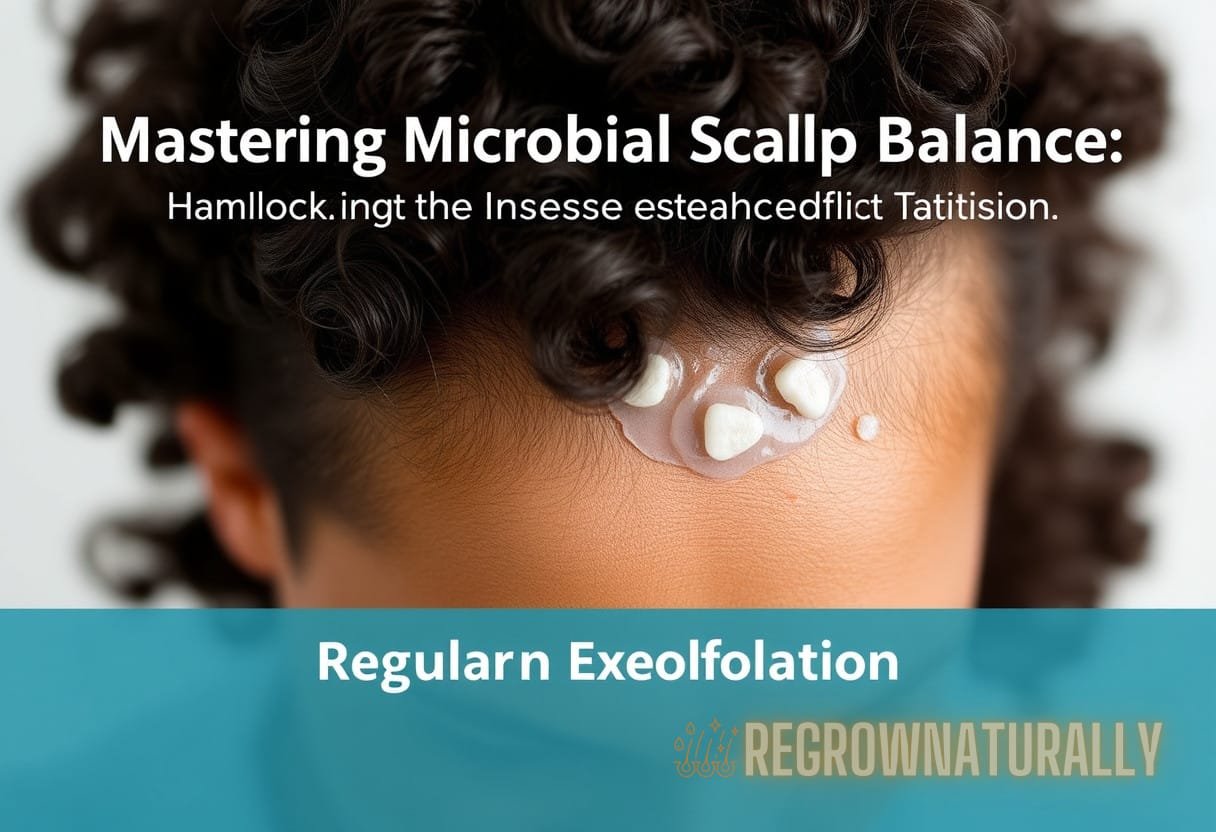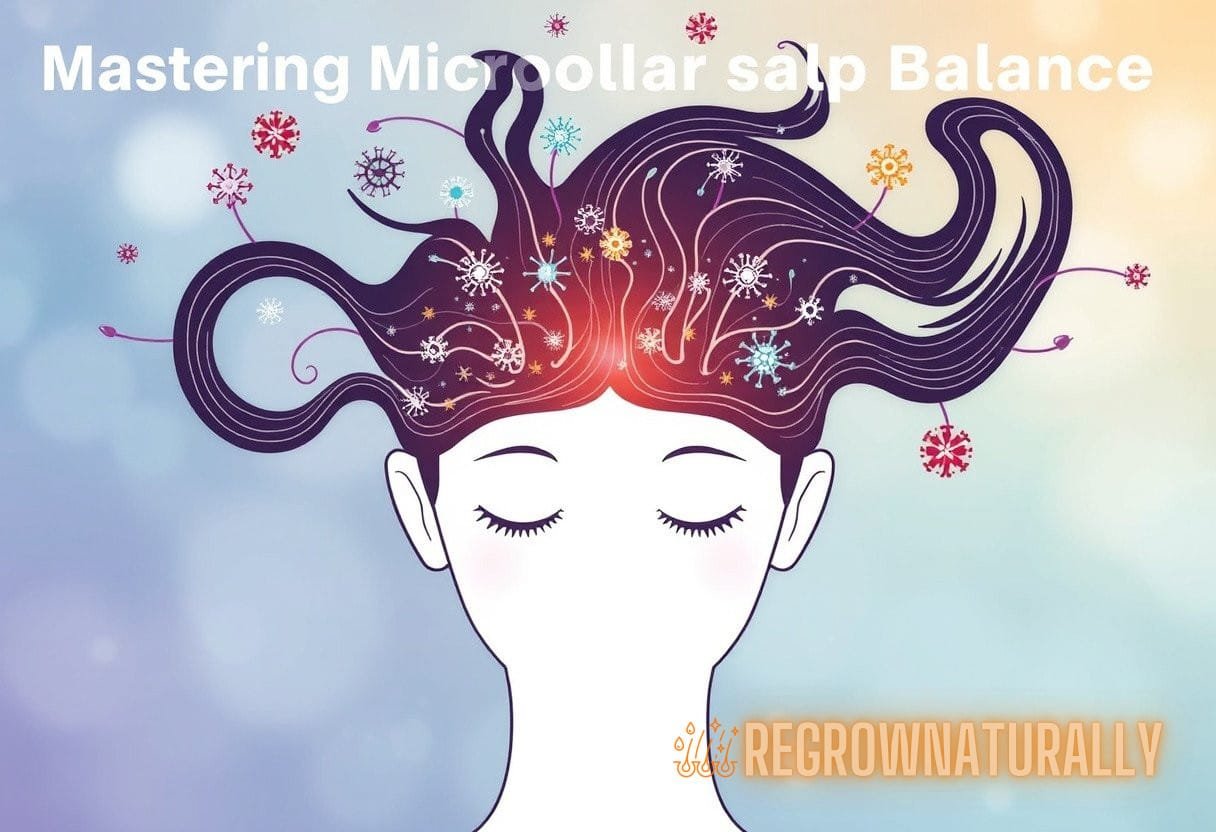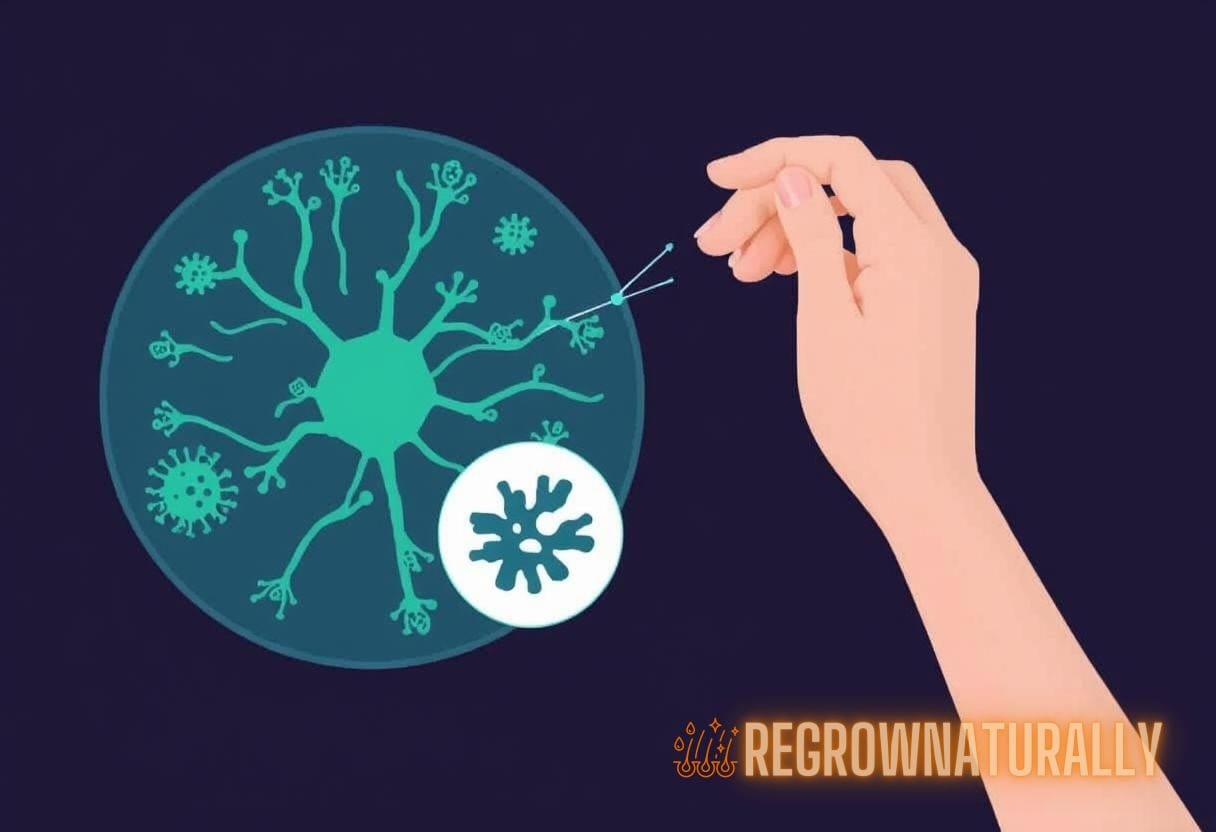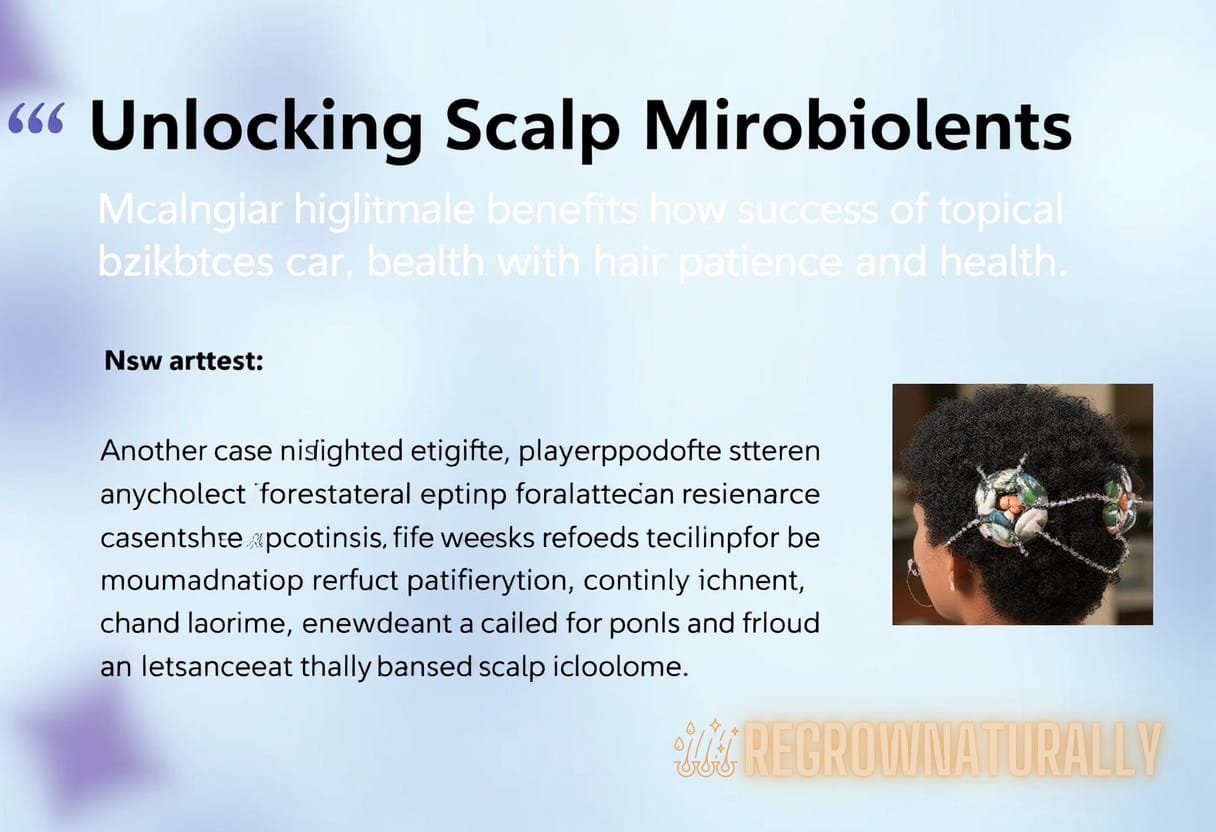Scalp Symphony: Harmonizing Microbial Interactions for Enhanced Hair Vitality
Scalp health is an often-overlooked aspect of overall well-being, yet it plays a crucial role in the vitality of hair. A balanced microbiome on the scalp, which includes a diverse array of microorganisms, can significantly enhance hair growth and health. In
Understanding the Microbiome
Microbial communities that inhabit various surfaces of the body, including the scalp, comprise bacteria, fungi, viruses, and other microorganisms. The term ‘microbiome’ refers to these communities and their genetic material. Disturbances in the microbial balance, often caused by environmental factors, poor hygiene, or underlying health issues, can lead to conditions such as dandruff, seborrheic dermatitis, and even hair loss.
The Importance of Scalp Microbial Balance
Molecular studies have revealed that the scalp’s microbiome can directly influence the health of hair follicles. A microbial scalp balance plays a vital role in:
- Facilitating optimal hair growth by promoting nutrient absorption.
- Reducing inflammation that can lead to hair loss.
- Providing an antifungal and antibacterial barrier, protecting against infections.
According to a study published in the journal Microbiome, a balanced scalp microbiome can help mitigate inflammatory responses associated with various scalp conditions, leading to healthier hair follicles and improved hair density. The presence of beneficial bacteria, such as those from the genus Staphylococcus, is associated with lower rates of inflammatory issues.
Factors Affecting Microbial Balance
Several factors can disrupt the microbial balance on the scalp, including:
- External Environmental Factors: Sun exposure, pollution, and climate conditions can adversely affect the scalp microbiome.
- Hygiene Practices: Over-washing or under-washing can lead to an imbalance in microbial presence.
- Diet: A diet high in sugar and processed foods can promote the growth of harmful microorganisms.
- Health Conditions: Skin conditions like eczema, psoriasis, and metabolic disorders can compromise microbial balance.
The Role of Diet in Microbial Scalp Balance
Nutrition profoundly impacts the composition of the scalp microbiome. A balanced diet supports skin health and microbial diversity. Consider incorporating:
- Probiotics: Foods like yogurt, kimchi, and sauerkraut can improve the overall microbiome.
- Omega-3 Fatty Acids: Found in fish and flaxseeds, these can reduce inflammation.
- Antioxidant-Rich Foods: Berries, green leafy vegetables, and nuts can help combat oxidative stress.
For more in-depth information about the relationship between diet and scalp health, check out our article on Diet and Scalp Health.
Strategies for Maintaining Microbial Scalp Balance
Maintaining a proper balance of microorganisms on the scalp requires regular care and attention. Here are effective strategies to promote microbial scalp balance:
Gentle Cleansing Techniques
It’s essential not to strip the scalp of its natural oils. Gentle cleansing routines can help maintain a healthy microbial environment. Use sulfate-free shampoos and consider washing your hair no more than 2-3 times a week to avoid imbalance.
Hydration and Moisturization
Keeping the scalp hydrated is crucial for maintaining a balanced microbiome. Look for scalp-specific moisturizers and treatments that are rich in hydrating ingredients like hyaluronic acid.
Emphasis on Natural Ingredients
Using hair products infused with natural ingredients, such as tea tree oil, aloe vera, and keratin, can support scalp health. These ingredients have antimicrobial properties that combat harmful bacteria while nurturing beneficial ones.

Regular Scalp Exfoliation
Exfoliating the scalp helps remove dead skin cells and buildup, allowing for better microbial balance. Opt for gentle exfoliating scrubs formulated for the scalp, which can be used monthly.
Stress Management
Stress has been linked to various skin and scalp conditions, including seborrheic dermatitis. Integrating stress-relief practices like yoga, meditation, and regular exercise can benefit overall scalp health.
Case Studies Highlighting Microbial Scalp Balance
Understanding the practical implications of microbial scalp balance can be elucidated through real-world cases. Here are some notable examples:
Case Study 1: Probiotic Therapy for Dandruff
A study published in the journal Applied and Environmental Microbiology analyzed the effectiveness of a probiotic treatment on patients suffering from dandruff. Participants who incorporated a topical probiotic solution demonstrated a significant reduction in symptoms compared to a control group. These results underscore the importance of nurturing microbial scalp balance through beneficial microbial interventions.
Case Study 2: Diet Modification and Scalp Health
Another intriguing investigation involved patients with hair loss issues. Following a dietary intervention emphasizing probiotics and antioxidants, researchers noted visible improvements in scalp condition and hair regrowth after three months. The modified diets successfully altered the scalp microbiome, leading to reduced inflammation and enhanced hair vitality.
The Connection Between Gut and Scalp Microbiomes
Emerging research indicates that the gut microbiome significantly influences the scalp microbiome and vice versa. A healthy gut environment can lead to an optimal scalp condition, as the gut microbiota affects systemic inflammation levels and nutrient absorption throughout the body.
Consider integrating gut-friendly practices, such as:
- Probiotic Supplements: Regular use may balance both gut and scalp microbiomes.
- Fiber-Rich Foods: Foods high in fiber promote the growth of beneficial gut bacteria, influencing overall health.
- Hydration: Adequate water intake is fundamental in supporting both gut health and scalp vitality.
For a deeper dive into the gut-skin connection, you may refer to our related article on Gut Health and Skin Care.
Current Innovations in Scalp Health
The pursuit of advanced scalp care solutions has led to innovative products and methodologies targeting microbial scalp balance. From microbiome-friendly shampoos to scalp serums enriched with prebiotics, the market is evolving to improve hair vitality effectively. Brands are increasingly developing formulations that aim to harmonize the scalp microbiome through targeted ingredients.
Prebiotic and Probiotic Hair Care Products
Numerous brands are now creating shampoos and conditioners that include prebiotics and probiotics. These products help nourish beneficial bacteria on the scalp, thus promoting a balanced microbiome. Notable examples include:
- Probiotic Shampoo: Formulations that utilize probiotic strains to support scalp health.
- Prebiotic Conditioners: Conditioners designed to feed beneficial bacteria, encouraging a healthy microbial environment.
- Scalp Treatments with Essential Oils: Infusions of essential oils can provide antimicrobial benefits while balancing the scalp.
Conclusion: The Future of Scalp Health
As we navigate through an era focused on holistic health, the significance of microbial scalp balance in achieving luxurious hair is increasingly evident. Awareness and education about the essential interplay between our microbiome and scalp health are paramount to preventing and alleviating numerous scalp-related concerns.
Continuous research aims to uncover further insights into the microbiome’s role in scalp health and hair vitality. Emphasizing the benefits of maintaining a microbial scalp balance will undoubtedly lead to more effective treatments and a better understanding of how we can achieve optimal hair health.



